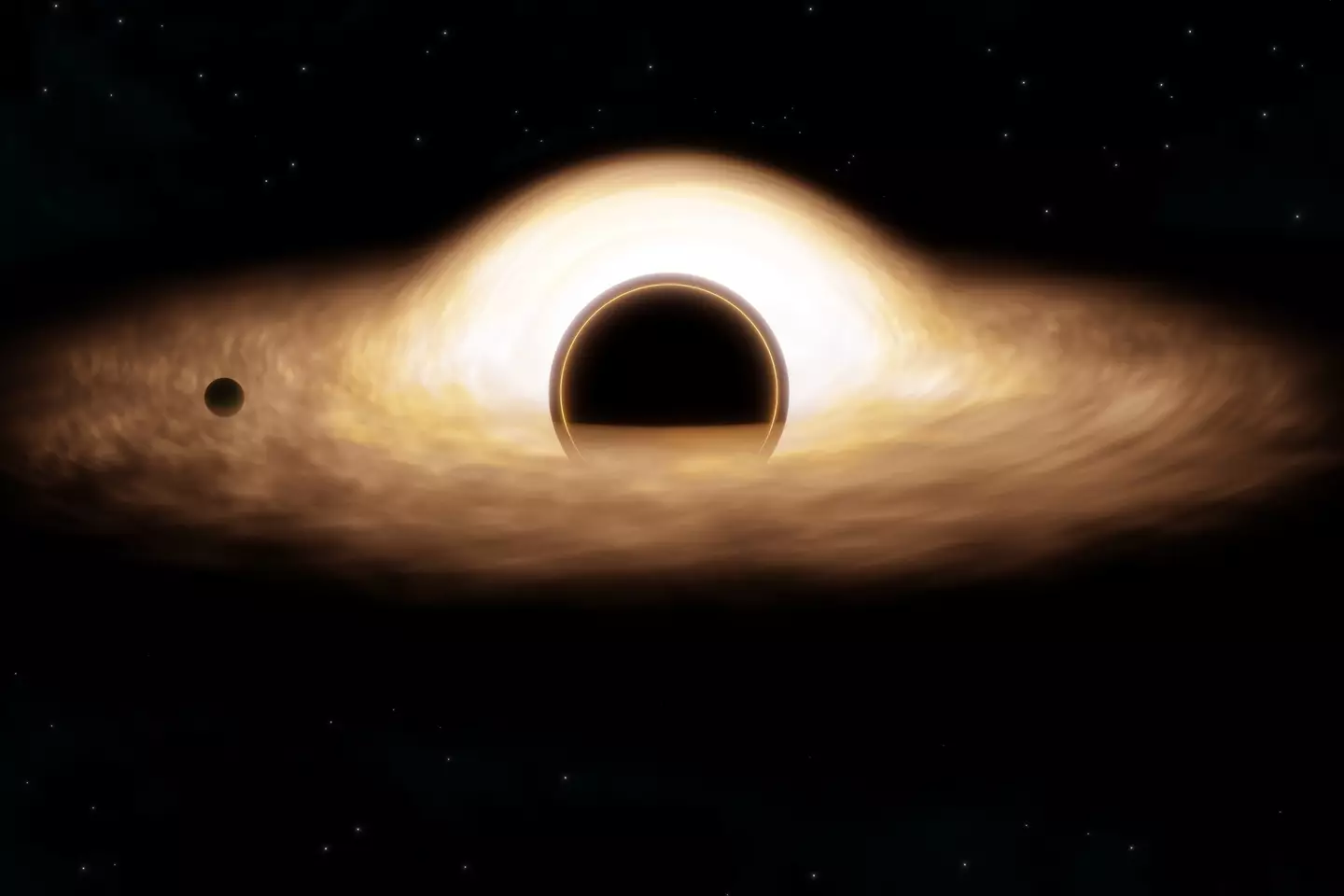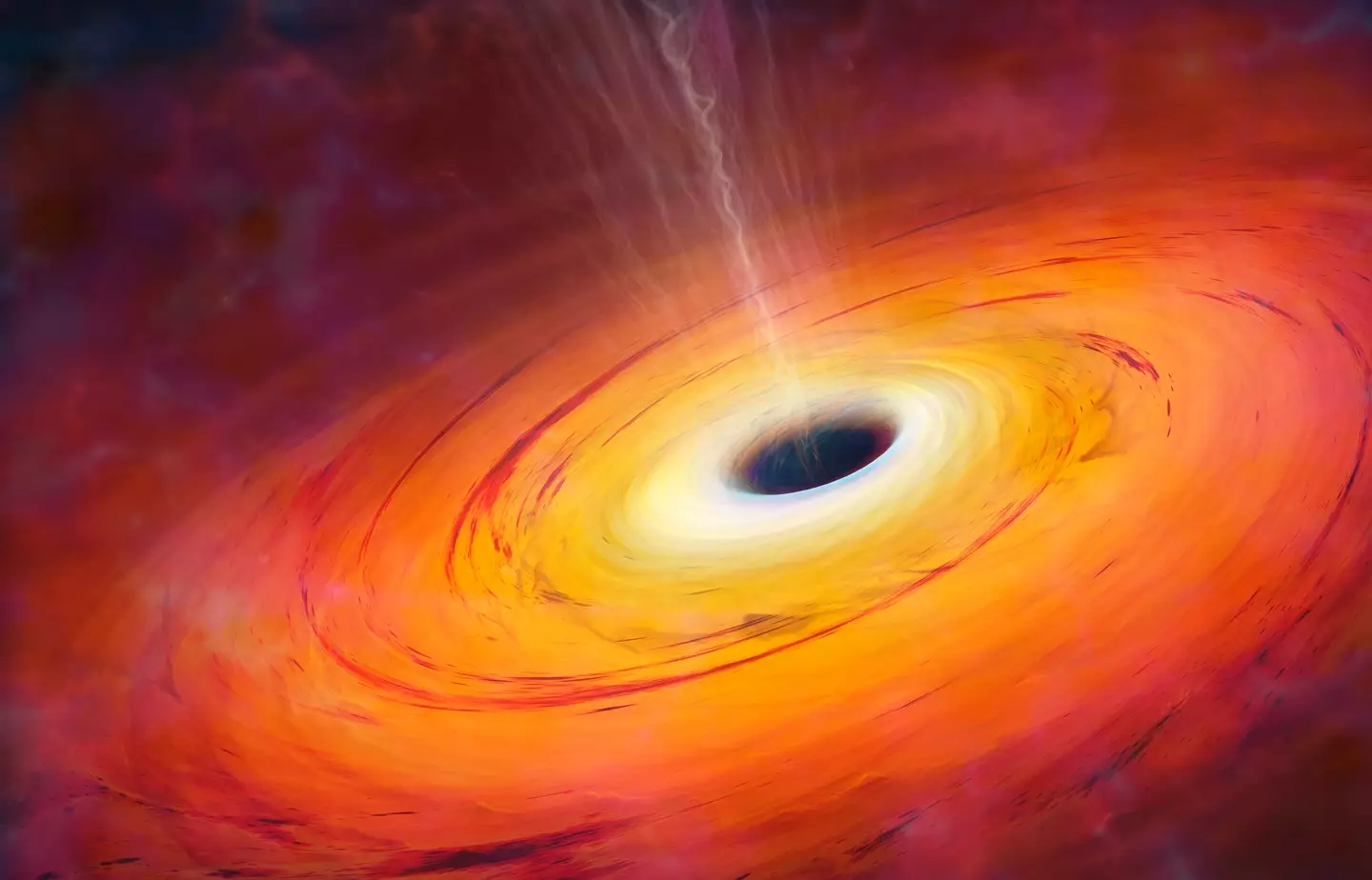
Scientists have created the world’s first ‘black hole bomb’ and it could help experts better understand the space phenomenon.
The theory of the black hole bomb was first proposed by physicist Roger Penrose back in 1971.
The idea was that the angular momentum of a moving black hole and the energy that creates could be transferred to a particle close to the black hole.
Two years on from that, another scientist, Yakov Zeldovich, made the discovery that a similar process could take place in other situations.
Advert
This includes things like light moving around a fast-spinning metal cylinder.
Zeldovich also believed that if you surround the rotating cylinder with a cylindrical mirror then the energy could be reflected and built up in a positive feedback loop.
This will occur until the energy is vented out or it explodes, producing a black hole bomb.

This theory of extracting energy has finally been put to the test, although thankfully, this was on a much smaller scale.
Instead of using a real black hole in outer space to try out the idea, instead physicists experimented with a safe toy model, although the principles are identical.
Vitor Cardoso, who is from the University of Lisbon in Portugal, spoke to New Scientist about the revelation, where he said: “You throw a low-frequency electromagnetic wave against a spinning cylinder, who would think that you get back more than what you threw in? It’s totally mind boggling.”
He went on to say: “Having accurate measurements in the laboratory of this process really allows you to confidently say, ‘yes, this must happen in black hole physics as well’.”

Hendrik Ulbricht, who conducted the experiment with a team at the University of Southampton in the UK, explained: “We’re basically generating a signal from noise, and that is the same thing that happens in the black hole bomb proposal.”
This test has the potential to help scientists gain a better understanding of how the phenomenon works and could lead to more insight on things including dark matter.
Cardoso added: “If new fields exist, we should be seeing, for instance, gravitational waves being emitted from this cloud around black holes, or we should see black holes spinning down because they’re giving their energy away to these new particles.
“So superradiance is turning black holes into particle detectors, and much better particle detectors than [the Large Hadron Collider at] CERN can be for this type of dark matter.”